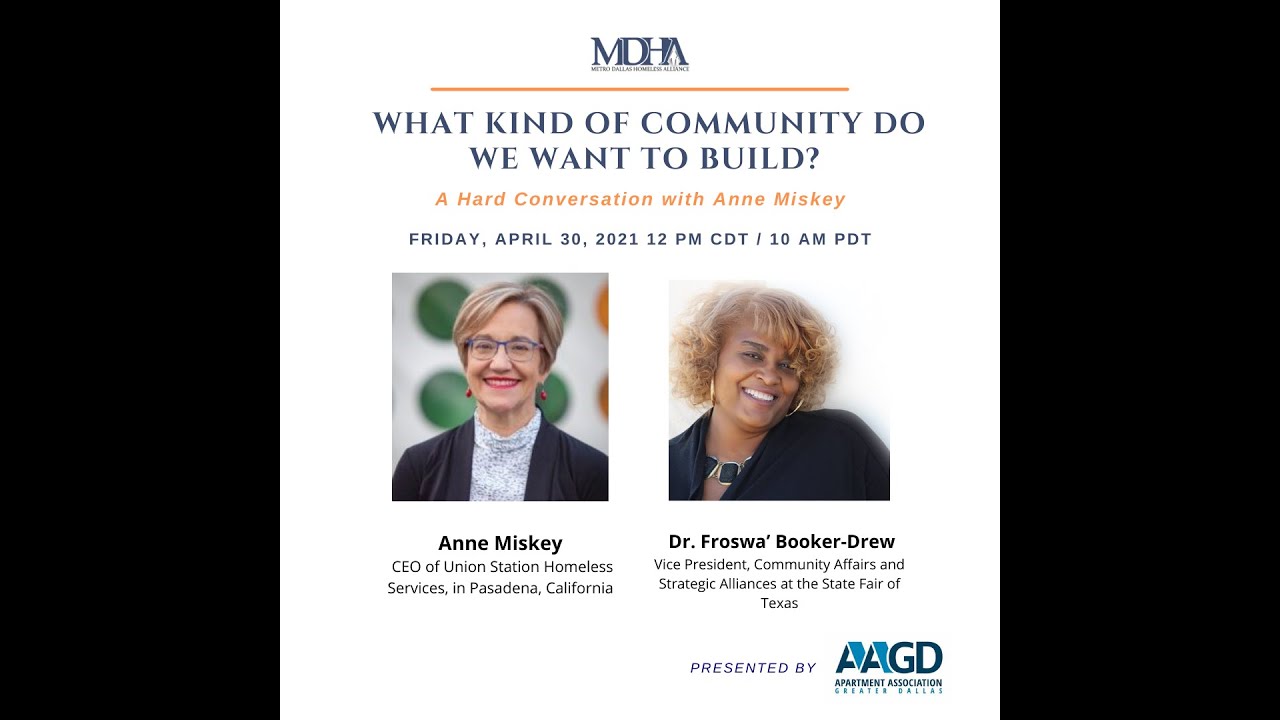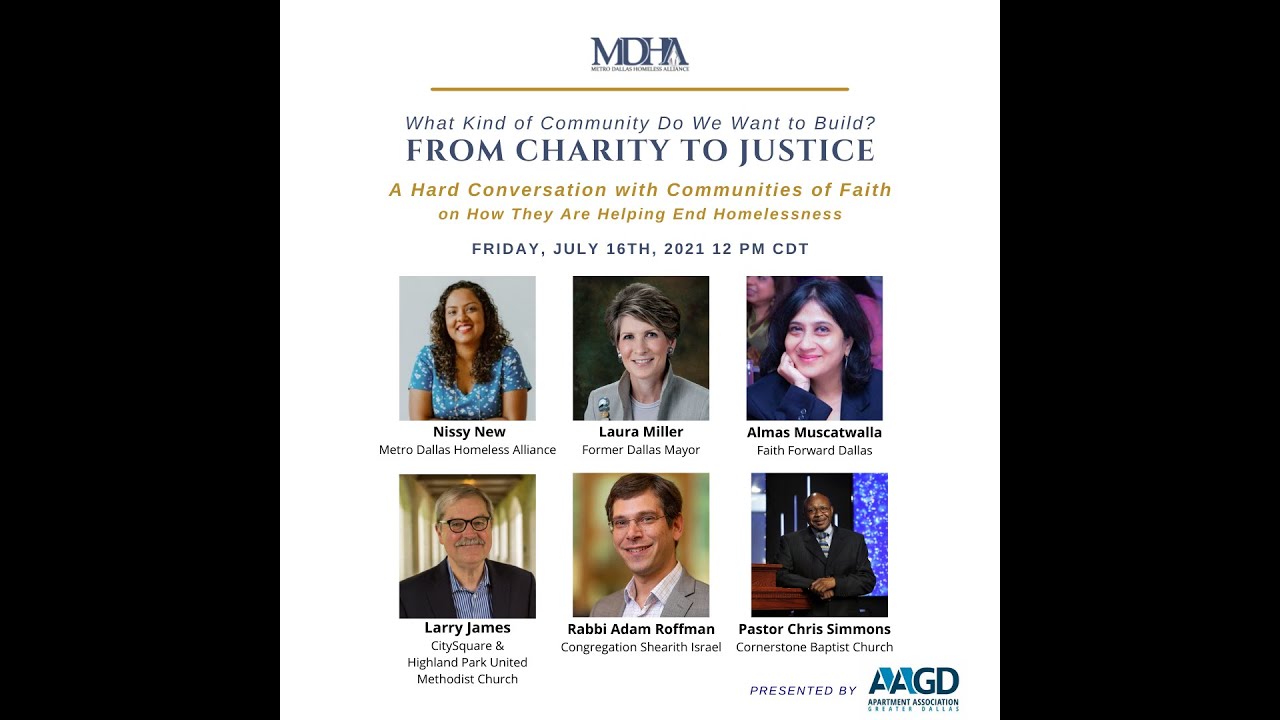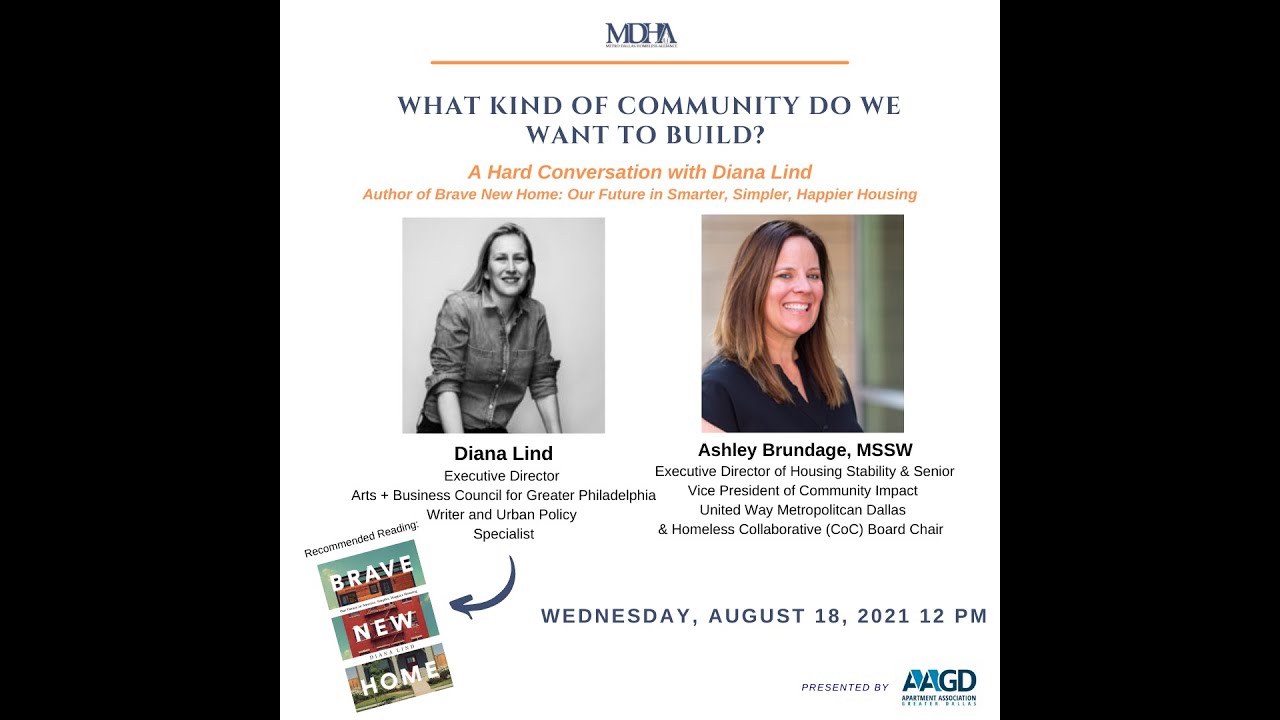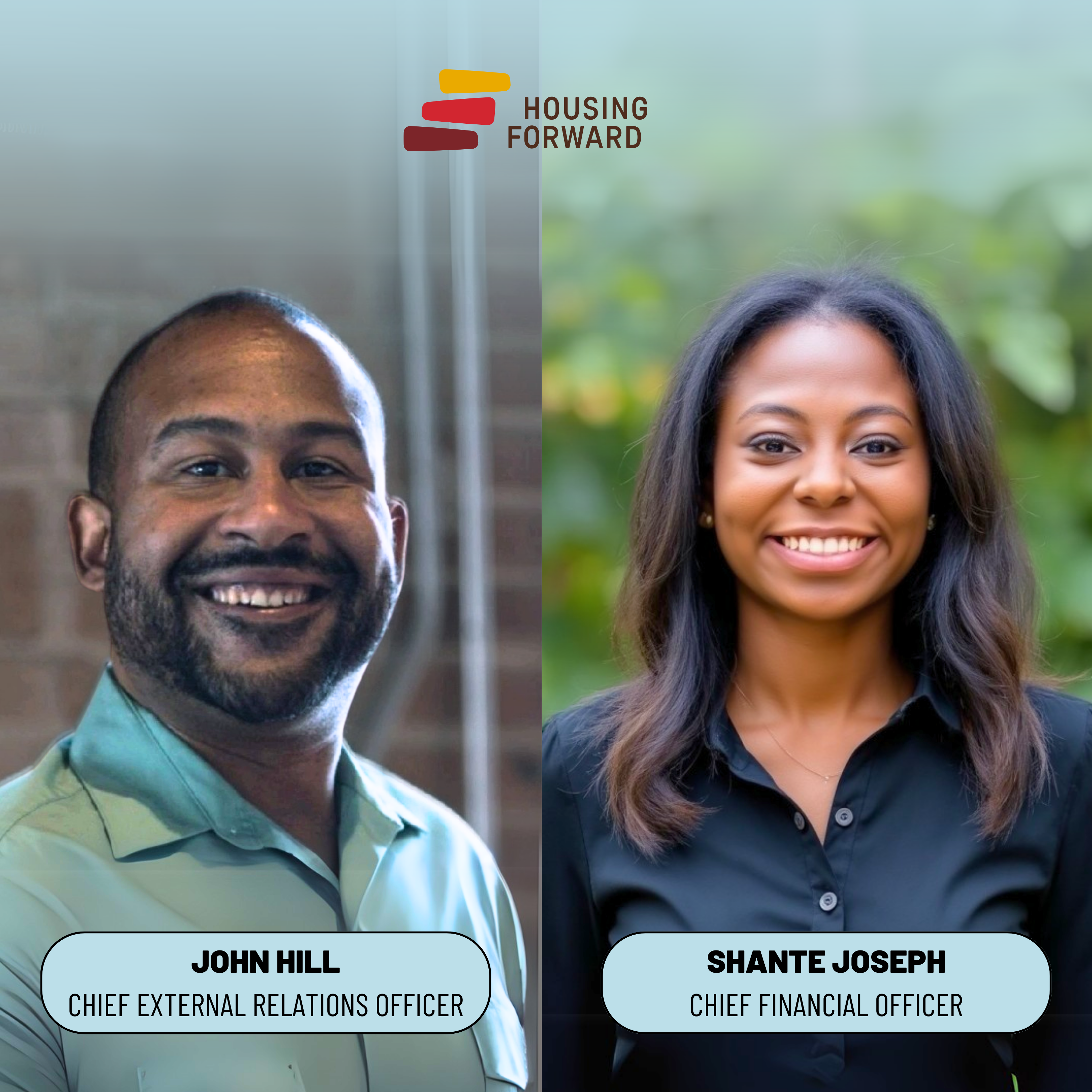(Updated September 15, 2021) This was the first year that Hard Conversations focused on one theme for the entire year, What Kind of Community Do We Want to Build? presented by the Apartment Association of Greater Dallas.
1. April 30th – What kind of community do we want to build in Dallas? A Hard Conversation with Anne Miskey
Communities that have made measurable reductions in homelessness recognize that they will not reach their full potential unless they ensure everyone’s wellbeing. Few people have better articulated this idea and put it into practice, in the area of homelessness, than Anne Miskey, CEO of Union Station Homeless Services in Pasadena, California. Anne was in conversation with Dr. Froswa’ Booker Drew, Vice President, Community Affairs and Strategic Alliances at the State Fair of Texas, as they discussed the theme of this year’s Hard Conversations, what kind of community do we want to build?

2. June 8th – What America Gets Wrong About Poverty, a Hard Conversation with co-author of Poorly Understood, Dr. Mark Robert Rank
Poorly Understood is the first book to systematically address and confront many of the most widespread myths pertaining to poverty. The idealized image of American society is one of abundant opportunities, with hard work being rewarded by economic prosperity. But what if this picture is wrong? What if poverty is an experience that touches the majority of Americans? What if hard work does not necessarily lead to economic well-being? What if the reasons for poverty are largely beyond the control of individuals? Armed with the latest research, Poorly Understood not only challenges the myths of poverty and inequality, but it explains why these myths continue to exist, providing an innovative blueprint for how the nation can move forward to effectively alleviate American poverty.

3. July 16th – From Charity to Justice – A Hard Conversation with Communities of Faith on How They Are Helping End Homelessness in Dallas and Collin Counties
This session, moderated by Nissy New, of MDHA, highlighted how different faith communities in Dallas and Collin Counties are moving beyond traditional charitable approaches to homelessness to meaningfully engage members to move the dial on ending homelessness. It featured Former Dallas Mayor Laura Miller and Rabbi Adam Roffman, of Congregation Shearith Israel, Almas Muscatwalla, of Faith Forward Dallas, Pastor Chris Simmons, of Cornerstone Baptist Church, and Larry James, of CitySquare and Highland Park United Methodist Church.

4. August 18th – Brave New Home: Our Future in Smarter, Simpler, Happier Housing, A Hard Conversation with author, Diana Lind
Over the past century, American demographics and social norms have shifted dramatically. More people are living alone, marrying later in life, and having smaller families. At the same time, their lifestyles are changing, whether by choice or by force, to become more virtual, more mobile, and less stable. Lind shows why a country full of single-family houses is bad for us and our planet and details the new efforts underway that better reflect the way we live now, to ensure that the way we live next is both less lonely and more affordable. Lind takes readers into the homes and communities that are seeking alternatives to the American norm, from multi-generational living, in-law suites, and co-living to microapartments, tiny houses, and new rural communities.
Diana was in conversation with Ashley Brundage, Executive Director of Housing Stability and Senior Vice President of Community Impact at United Way of Metropolitan Dallas and Chair of the Homeless Collaborative of Dallas and Collin Counties Board of Directors.

5. September 15th – You Can’t Arrest Your Way Out of Homelessness, a Hard Conversation with Dallas County District Attorney, John Creuzot
The DA spoke to his vision for how the criminal legal system should interact with those experiencing homelessness. He specifically discussed how Dallas Deflects, a place where law enforcement will take those experiencing homelessness with mental illness rather than taking them to jail, figures into that vision. The DA sees this center as fulfilling not just a moral obligation to humanely treat those who are suffering, but a financial obligation to the taxpayer, to do things better and cheaper, wherever possible. The DA was in conversation with Joli Angel Robinson, MDHA’s new President and CEO.






